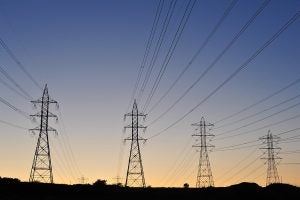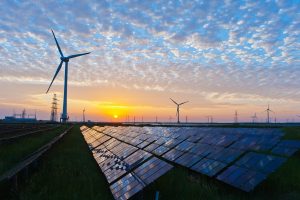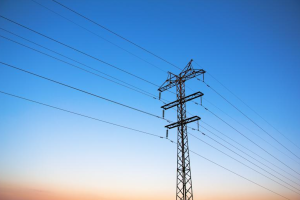 September 26, 2024
by Aidan Bassett
Energy
September 26, 2024
by Aidan Bassett
Energy
To address the transmission interconnection queue, regulators should have new powers, a modern study process, and a central role in planning the future of transmission.
 April 4, 2024
by Can Cao
Climate change
Energy
International
Natural Resources
Oil and Gas
Renewable Energy
April 4, 2024
by Can Cao
Climate change
Energy
International
Natural Resources
Oil and Gas
Renewable Energy
This article explores the Middle East's shift away from oil dependence towards renewable energies, highlighting how this energy transition has resulted in regional collaboration, economic diversification, and global implications.
 April 2, 2024
by Aidan Bassett
Energy
Renewable Energy
April 2, 2024
by Aidan Bassett
Energy
Renewable Energy
To deploy renewables and meet its climate targets, the U.S. will need new transmission and grid-enhancing technologies to get the most from its existing power infrastructure.
 March 21, 2024
by Stefan Koester
Energy
Regulations
Renewable Energy
Sustainability
March 21, 2024
by Stefan Koester
Energy
Regulations
Renewable Energy
Sustainability
IRS comment period for the 45V clean hydrogen tax credit guidance closed on February 26, 2024. This credit provides a tiered production tax credit for clean hydrogen depending on its emissions intensity. The draft guidance relies on three pillars to ensure emissions integrity – additionality, temporal and geographic matching. Judging by some comment responses, controversial reactions to each of these pillars were significant, with many commenters suggesting that the courts will have the final say on how these tax credits will be finalized. Will all this uncertainty derail the clean hydrogen economy?
 February 27, 2024
by Nathan Tatum
Energy
Regulations
State and Local
February 27, 2024
by Nathan Tatum
Energy
Regulations
State and Local
The Federal Energy Regulatory Commission (FERC) held its February open meeting on Feb. 15, 2024, addressing a number of items including cold weather reliability standards, hydropower permitting, and natural gas exports.
 October 12, 2023
by Julie Tolmie
Energy
Litigation
October 12, 2023
by Julie Tolmie
Energy
Litigation
To prevent more devastating wildfires and take advantage of a recent surge in federal funding, utilities should invest in improving electrical infrastructure.
 October 10, 2023
by Jesse Valente
Climate change
Energy
Oil and Gas
October 10, 2023
by Jesse Valente
Climate change
Energy
Oil and Gas
As COP28 approaches, this article explores the controversial role of big oil in climate talks and questions whether their involvement could compromise the summit's goals for urgent climate action.
 July 10, 2023
by Avi Wolasky
Energy
Natural Resources
Oil and Gas
July 10, 2023
by Avi Wolasky
Energy
Natural Resources
Oil and Gas
The Russian invasion of Ukraine has caused devastating turmoil. Thousands of Ukrainian civilians are dead and millions more have become refugees.[1] Civilians remaining in Ukraine lack consistent access to food, water, and other essential supplies.[2]…
 March 7, 2023
by Kimberly Wood
Energy
Fossil Fuels
March 7, 2023
by Kimberly Wood
Energy
Fossil Fuels
Long lines for gas and skyrocketing retail gas prices marked May 2021 as a memorable month for automobile owners. While gasoline shortages in the early 1970s were caused by an international oil embargo, this more recent supply shortfall resulted from…
 February 6, 2023
by Paige Power Kendrick
Air
Energy
Fossil Fuels
February 6, 2023
by Paige Power Kendrick
Air
Energy
Fossil Fuels
The last few years, especially these last few months, have seen aviation emission regulation like never before. At home and abroad, the aviation industry appears to be making significant inroads relating to emissions from engines “typically used in…











